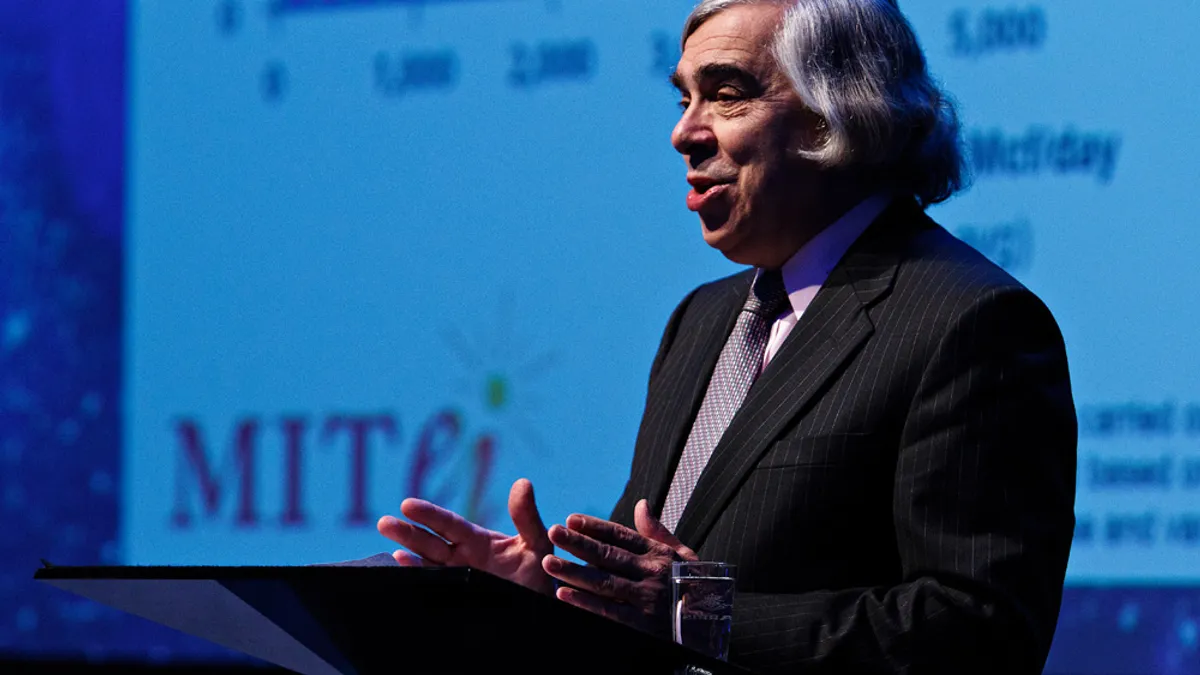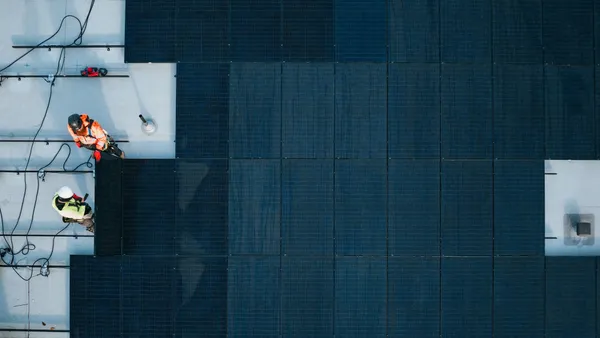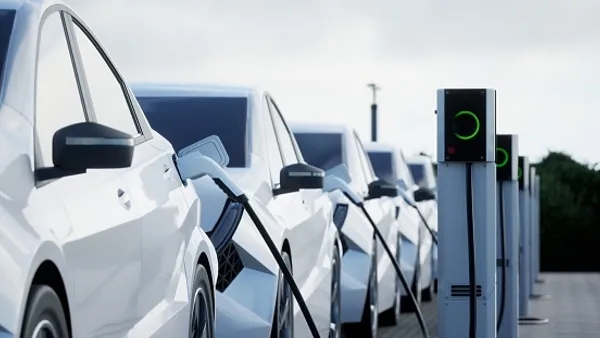Dive Brief:
- Continuing its focus on building efficiency, the U.S. Department of Energy is launching three new accelerator programs focused on boosting energy resiliency in communities, including one that will focus on sustainable combined heat and power projects.
- In another accelerator focused on low-income communities, local and national partners will work to expand installation of energy efficiency and distributed renewables, ultimately looking to lower utility bills.
- The new accelerator programs are a part of DOE's Better Buildings Challenge, which since 2011 has resulted in more than $1.3 billion in energy cost savings.
Dive Insight:
The Department of Energy's Better Buildings Challenge is showing results, and the agency announced it is replacing and expanding completed initiatives to continue boosting efficiency and clean energy in the nation's building stock.
DOE said its Energy Data Accelerator was the first of 10 accelerator programs, focused on advancing specific policies and approaches, to successfully complete its mission. In its place, DOE launched three new accelerator programs focused on helping communities boost energy resiliency through combined heat and power, lower energy costs in low income communities, and upgraded wastewater infrastructure.
"Thanks to a dedicated drive to actively create and share the best energy efficiency solutions, Better Buildings partners have dramatically cut their energy waste and saved more than a billion dollars since the Better Buildings initiative was launched five years ago,” Energy Secretary Ernest Moniz said in a statement. “As the initiative continues to grow, we are moving the nation forward by reducing energy costs and carbon emissions through energy efficiency.”
DOE said there are 310 Better Buildings Challenge partners working on goals to reduce energy use by 20% within a decade. The partners represent 34,000 buildings and facilities, 4.2 billion square feet, and $5.5 billion dollars in energy efficiency investment.
As part of the Better Buildings Clean Energy in Low Income Communities Accelerator, DOE said partners will work to deploy clean energy in low income communities through expanded installation of energy efficiency and distributed renewables and lower utility bills for residents.
In the Better Buildings Combined Heat and Power for Resiliency Accelerator, municipalities will work with utilities "to support and expand the consideration of combined heat and power technologies for improved efficiency and enhanced resiliency," the agency said.
And the Better Buildings Wastewater Infrastructure Accelerator will urge state, regional, and local agencies to improve the energy efficiency of their participating water resource recovery facilities by at least 30% and integrate at least one resource recovery measure.
In the last five years, the Better Buildings Challenge partners and energy efficiency commitments have tripled, helping avoid 10 million tons of carbon emissions.














